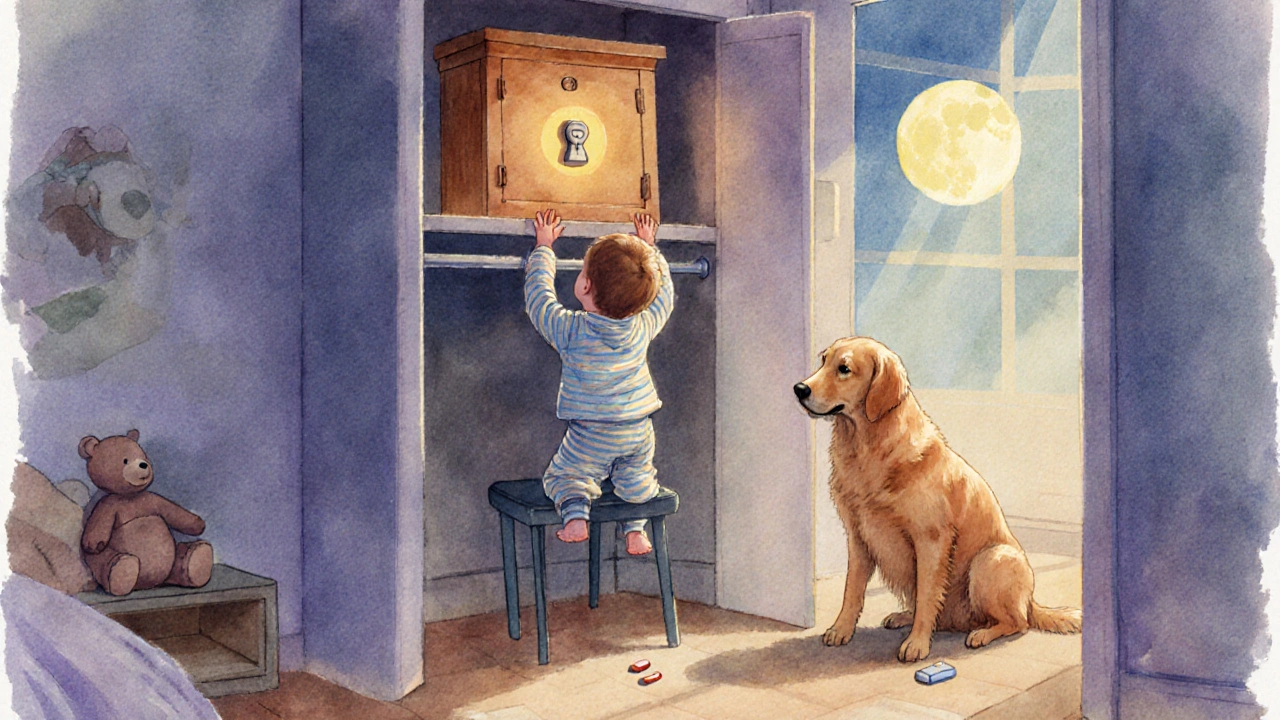Pet Poison Prevention: How to Keep Your Dog, Cat, and Other Pets Safe at Home
When it comes to pet poison prevention, the practice of identifying and eliminating household dangers that can harm animals. Also known as pet safety from toxins, it’s not just about keeping chemicals out of reach—it’s about understanding what everyday items your dog, cat, or rabbit might mistake for food or playthings. Every year, thousands of pets end up in emergency clinics because someone didn’t realize that a single chocolate chip, a lily flower, or a drop of antifreeze could be deadly.
One of the biggest risks is toxic foods for pets, human foods that seem harmless but can cause organ failure or death in animals. For example, grapes and raisins can trigger sudden kidney failure in dogs, even in tiny amounts. Xylitol, a sugar substitute found in gum and peanut butter, causes a dangerous drop in blood sugar and liver damage in dogs within minutes. Cats are just as vulnerable—onions, garlic, and chives can destroy their red blood cells, leading to anemia. And don’t forget household pet hazards, common items like cleaning products, medications, and indoor plants that seem harmless to humans. Aloe vera, for instance, is safe for your skin but toxic if your cat chews on it. Even ibuprofen or acetaminophen from your medicine cabinet can kill a pet in one pill.
It’s not just about what’s on the counter. Pets explore with their mouths. A dropped pill, a spilled bottle of antifreeze under the car, or a chewed-on battery from a remote control can turn a quiet afternoon into a life-or-death situation. Small pets like hamsters and birds are just as at risk—avocado, caffeine, and alcohol can be fatal to them too. The good news? Most poisonings are preventable. Keeping medications locked away, storing food securely, choosing pet-safe plants, and knowing which human foods are off-limits cuts the risk dramatically. You don’t need to live in a bubble—just be aware.
Knowing the signs of poisoning helps too. Vomiting, drooling, lethargy, tremors, or sudden collapse aren’t normal. If your pet acts off after eating something unusual, don’t wait. Call your vet or a pet poison hotline immediately. Time saves lives.
Below, you’ll find real-world guides on what to watch for, how to respond in an emergency, and how to make your home truly pet-safe. These aren’t theoretical tips—they’re based on cases vets see every week. Whether you’ve got a curious puppy, a sneaky cat, or a small pet that likes to nibble, you’ll find actionable steps to keep them alive and healthy.
Learn how to safely store medications to prevent accidental poisoning in children and pets. Simple, proven steps to lock, separate, and secure all drugs in your home.

